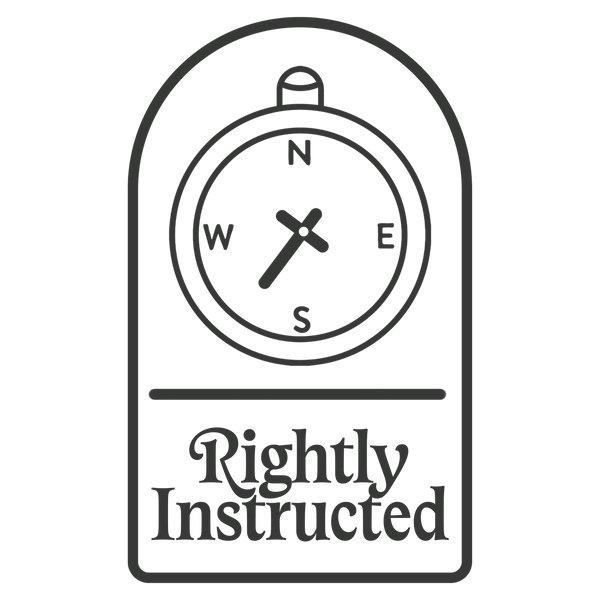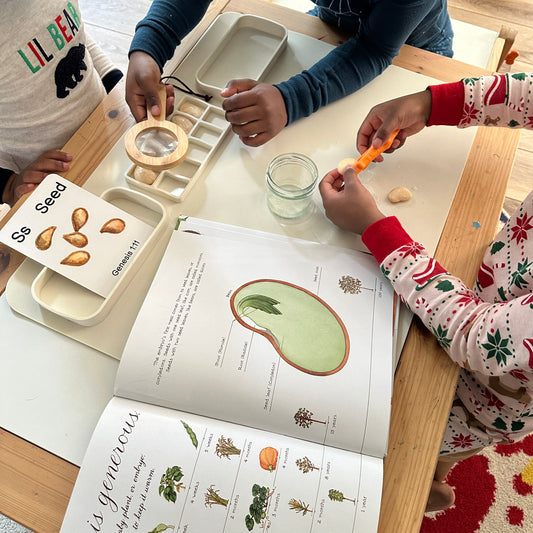
A Biblical Response to Tattling
Share
"Tattling" or telling on someone else seems like it's one of the first thing siblings learn to do. As soon as you reach that golden stage of more independent play, the looming question of how long before someone comes running to tell who did what wrong can cast a shadow on an otherwise peaceful part of your day. Here's a biblical response to tattling that may help you respond lovingly and turn your children's eyes toward Jesus in a moment when another's mistake seems to be all they can see.
A couple of weeks ago, I was in the middle of my devotion time when all three of my children burst into my room - at full volume - pointing fingers and casting blame in every which way for some crime I couldn't even make out because they were all talking at the same time.
Normally, this is enough to send me over the edge, shut every bit of loving, maternal care down and just send them all straight out of my room until I could gather enough wherewithal to dive in and start sorting things out. But this time was different.
I gave them all a blank stare until they quieted down. Then they seemed to remember we've been working on knocking and polite interruptions, so they went back out, closed the door and knocked. Once invited in, the eldest started with, "Excuse me, Mom..." Much better! He then gave me the rundown of what happened. Then I asked each of the girls to give me their side of the story.
Once we got to the bottom of what happened, what I heard myself say after all that shocked even me. I said:
“I’m so glad you recognize that wasn’t a kind thing to do. Remember though that it’s more important for you to run to Jesus first to confess your own faults than it is to run to Him - or any other authority like mommy or daddy - with the faults of another.
If someone else needs forgiveness, let them know where to find it. And if it needs to start with you, be sure it does.”
They proceeded with their apologies, "I forgive yous" and went off to attempt to play nicely together again while I scrambled to write down what I'd just said.
I knew I needed to remember it, and I thought it might help other parents who feel like they are constantly refereeing their children day in and day out.
Tattling is one of those things, like whining, that can easily get under our skin as parents. But when it hit me that it could be a glimpse into a tiny person's heart that has an innate understanding of a bigger, biblical truth, I was floored.
Tattling reveals a heart that understands the need for confession.
“If we confess our sins, he is faithful and just to forgive us [our] sins, and to cleanse us from all unrighteousness.” - 1 John 1:9 (KJV)
When our children tattle, it tells us they sense that communication will initiate the correction they crave.
As godly parents, our relationship with, and responses to, our children will — even if unknowingly — imprint on their other relationships, particularly the one with their Heavenly Father.
Our responses to what they bring to us become what they will expect from God when they go to Him… or maybe even determine whether they go to Him at all.
To be clear: when it comes to matters of safety, tattling isn’t a thing. It’s important that your children know to come to you immediately if safety is a concern. Define all that entails for them, so they’re sure.
When they come bursting into our presence to tell on somebody, it’s an opportunity to receive them with grace and remind them that:
1) it’s good that they recognize right from wrong;
2) none of us is without fault; and
3) they have a special opportunity to point others to Jesus in times when they recognize someone has done something that needs forgiveness. This starts with offering their own forgiveness first, rather than finger pointing. And they don’t need to wait for an apology first… Jesus didn’t. ("While we were still sinners, Christ died for us." Romans 5:8)
If this is the first time you’ve thought to respond to tattling in this way, save that response verbiage in a note in your phone so you can refer back to it. Then share this with your spouse so you can collectively respond more consciously the next time the opportunity arises.



